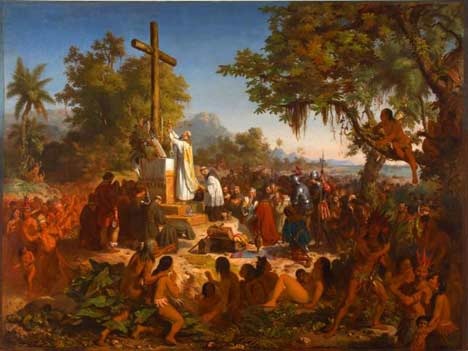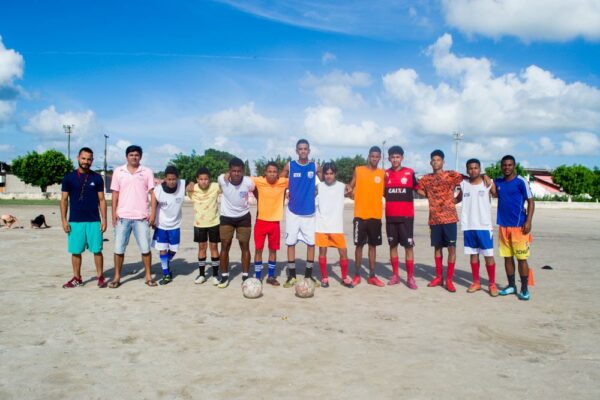Passa Quatro, Minas Gerais, October 1913. Sisters of the Providence from Gap, France, opened the front doors to the Nossa Senhora Aparecida Normal School. Right away the French nuns started off welcoming the girls from the region that would soon be promoted from the donkey’s hind to a piano stool. I myself, 46 years later, would sit and listen dazzled to one of the normal school graduates interpret, with remarkable vibration, a “Polonaise” of Chopin’s, “Heroic,” in A flat major. It was the church out to sow the seeds of culture…
Passa Quatro, 1935. Father Jean Baptiste Apetche from the Congregation of Betharram, also from France, disembarks from a smoky little train of the Mineira Transportation Network and begins construction – monumental for its time and place – for the future São Miguel Middle School, where the children of local farmers came in chewing tobacco cord and returned soon after singing plainchant. I myself, 24 years later, became familiar with its beautiful library and remarkable Natural History Museum. It was the Church out to inject new life into a forgotten corner of Brazil…
I personally lived with several of these priests from France (Eduardo Mieya, Émmanuel Calvarin, Michel Callerot), Italy (Andrea Antonini, Dante Angelelli, Lino Ilini, Luigi Gusmeroli), Argentina (Enrique Lasuén, Angel Dauro diamond), Paraguay (Carlos Morra, César Ojeda), the Spaniard José Maria Ruiz, “la baca,” the English pioneer Francis Darley, and many others. All of them spoke three to four different languages and opened our eyes to the global panorama, far beyond the limits of Serra da Mantiqueira. Suffice it to say that, in the old Junior high school (today, 7th and 8th grades), we studied five different languages: Portuguese, English, French, Latin and Greek.
Actually, it was always this way. When the Jesuit José de Anchieta landed in Brazil in 1553, at 19 years of age, he also brought rich contributions to the South American habitants, still in a sort of polished Stone Age. Agrafos, nomads, many of them man-eating, were grappling with endemic evils such as chicken pox, yaws, malaria and leishmaniosis. Our indigenous peoples would from then on have the opportunity to get to know a school. It was in the Jesuit schools where anthropophagi turned violinist. There, the batuque was made into an orchestra.
It is worth recalling the words of Fernando de Azevedo in his magnificent work “The Brazilian Culture,” ed. Melhoramentos, 1964, 803 pages, regarding the educational work of Anchieta and his confreres: “It is in this work of popular education, in the courtyards of its schools or in the catechesis villages, where the Jesuits set the foundations of their education system, and has therefore sought, in a deep sense, the Fellowship’s mission, whose role in the history of Brazil’s progress and training had to be, in over two centuries, as foremost and unquestionably superior to that of other religious orders.”
And still: “Appealing to the Indian boys at their homes or going to meet them in the villages; associating, in the same school community, the children of natives and other inhabitants – whites, Indians and mixed races – while seeking parallel to the education of these children to conquer and re-educate their parents, the Jesuits were not only serving to the work of catechesis, but laying down the groundwork of popular education and, disseminating in new generations the same faith, language and costumes, they began to forge, in spiritual unity, the political unity of one and the same fatherland.”
These foreign missionaries heard the Word of the gospel and were transformed by it. The Word-seed creates men-seeds. The same Jesus who sowed words also sowed men and women. This is why they came to Brazil. The Church is God’s seed bed and must sprout, bloom and bear fruit until the end of time. Without the educational activity of the Church, we would still all be capiaus and botocudos…
Thanks Church!
Related Articles
















